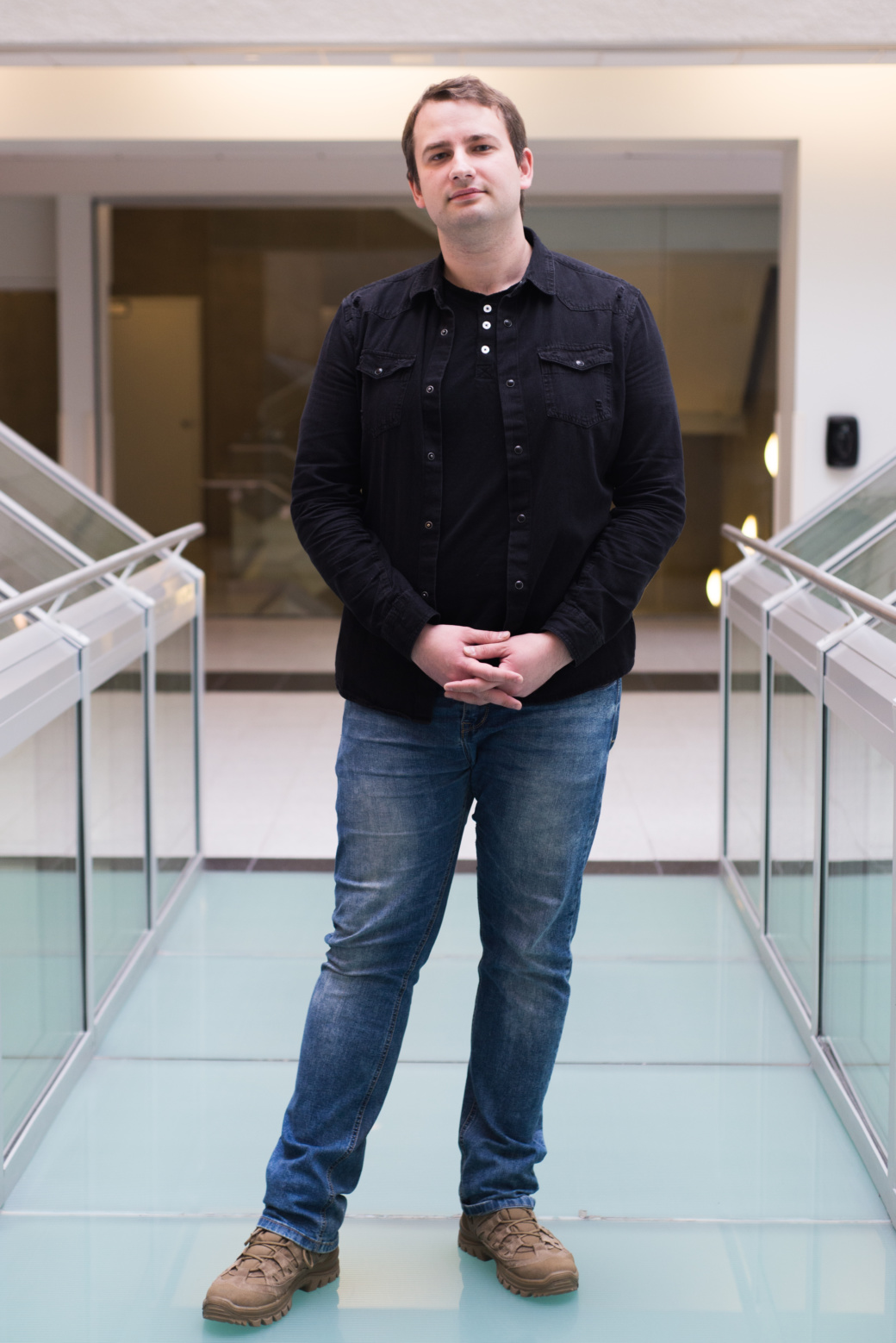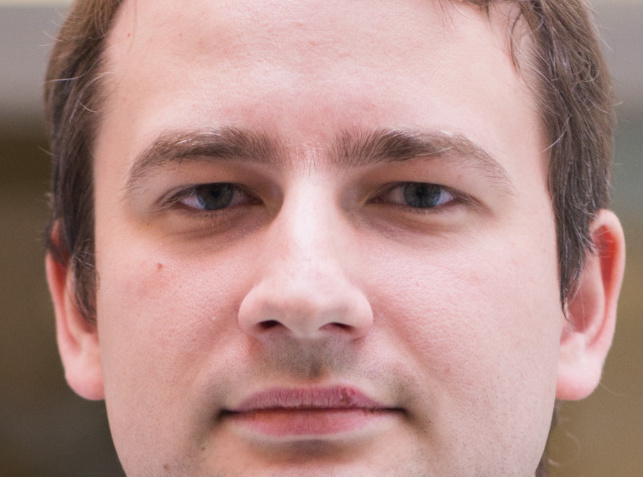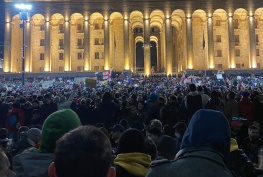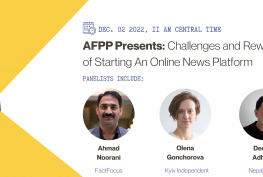
By Illia Ponomarenko |
After so many trips to war zones across the world, I thought there could be no adventure crazy enough to surprise me.
I was wrong: my journey to coronavirus-afflicted America as part of the Alfred Friendly fellowship program did give me a fair share of unexpected experiences.
Unlike some of my colleagues in Ukraine, I was lucky to enter the United States on March 12 with one of the last flights from Europe before the cross-Atlantic travel ban. I watched the nervousness of co-passengers in the plane bound for Chicago, unsettling news on CNN about the spread of the disease on airport TVs, and the rush for hand sanitizers.
As my friends commented on Facebook, my arrival in Missouri, was “a bit of epic luck.”
After 22 hours in the air, when I eventually saw the face of Program Director David Reed meeting me at the Columbia airport, I was nearly the happiest guy alive. Three years of hard work in a bid to deserve an invitation from the Alfred Friendly family finally and conclusively reached this goal. I was going to go through training sessions in advanced reporting for three weeks and then work in a top-tier U.S. newsroom for five months.

However, things never go easy for those who are always trying to walk the extra mile in both career and life, no matter the circumstances.
The disease was in a full-fledged offensive, shutting down more and more institutions and businesses in the city right in front of our eyes. The theaters closed. The bars and nightclubs shut their doors. Then, a few days after our arrival, even Starbucks across the street from the Reynolds Journalism Institute hung up the closed sign. The streets were half-empty, then, eventually, empty.
But we, the six fellows and Missouri School of Journalism professors, tried out best at keeping the program going all the way as planned.
When Mizzou moved online and sent their students home for quarantine, we had lectures and seminars in empty classrooms, computer labs and conference rooms. When the whole campus had to fully close, we continued participating in training sessions via Zoom from inside our rented houses a few blocks away.
All the credit in the world should be given to the program’s organizers, David Reed and Alfred Friendly President Randy Smith, for their die-hard effort to save the day. In that constantly deteriorating situation, their mission was almost impossible. But they managed to provide us with much of the experience they envisaged.
They fought until the very last minute to try and organize our work with our host newsrooms across America, even though all of them had been closed down for quarantine until further notice.
But of course, there can be no miracles. After Columbia issued a stay-at-home order, it became obvious that the situation would not get better in foreseeable future, and that we’d be better off getting back home until better times.
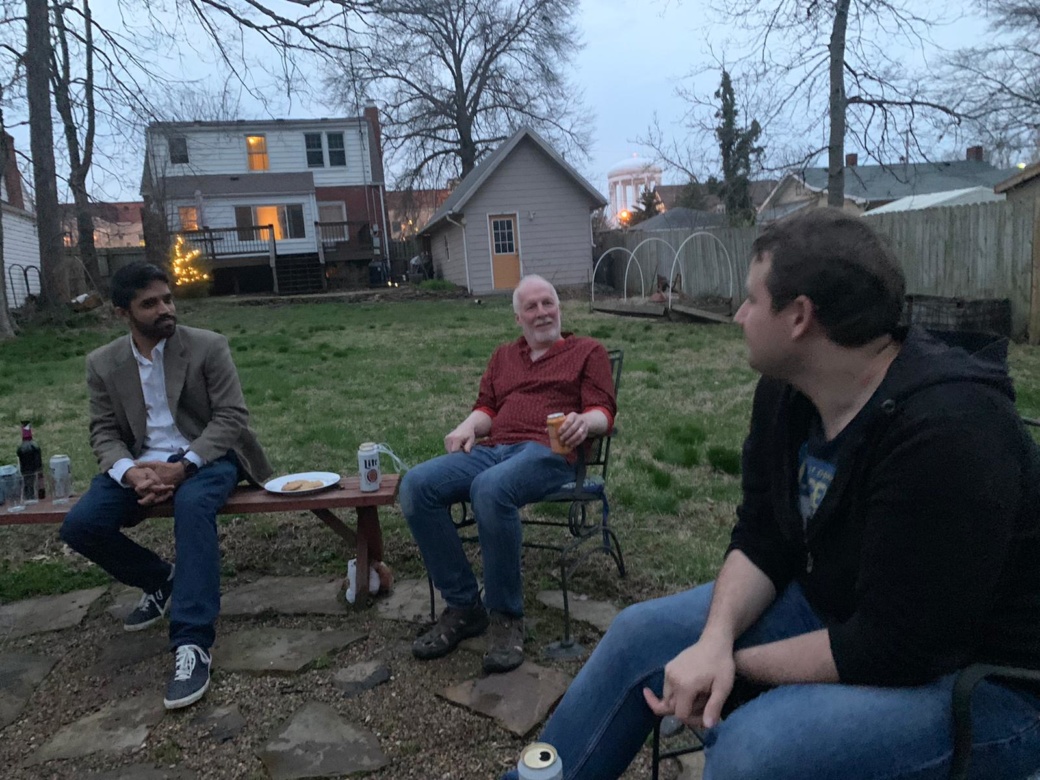
So instead of becoming a Pentagon reporter’s trainee with USA Today in Washington D.C. for five months, I had to get back home while it was still possible, after only two weeks in America.
I was lucky to enter the United States in the last hours, and I was lucky to catch the last emergency flight from New York City to Kyiv. That was it.
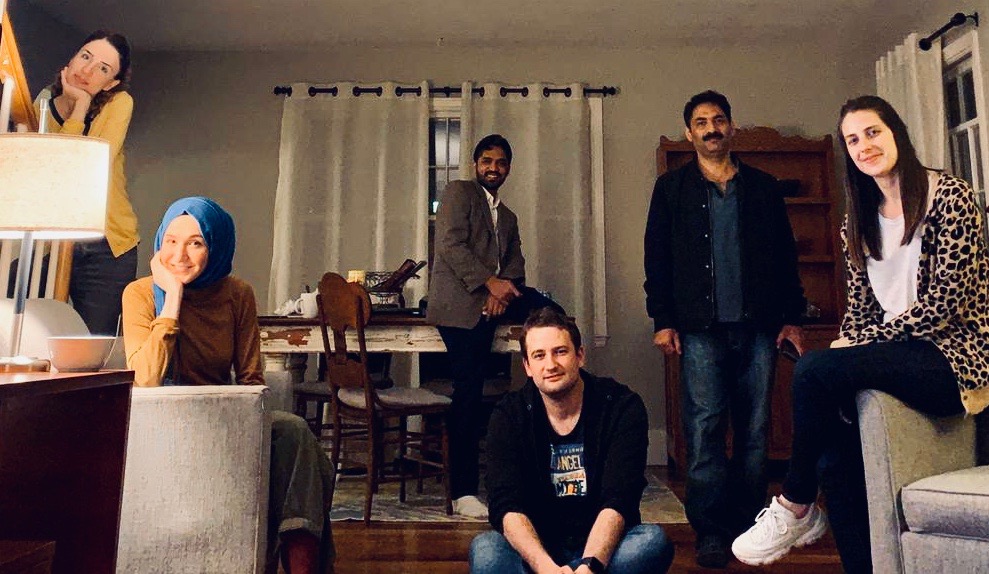
Of course, I was terribly sorry to leave America so soon. But, you know, I do not regret it.
After all, I had a chance to see something absolutely exceptional and remarkable during my time in the fellowship. I experienced our tireless attempts to go on studying despite the pandemic that paralyzed the whole world. I watched TV with my housemate Abhi and saw mesmerizing news of America’s effort in tackling the crisis.
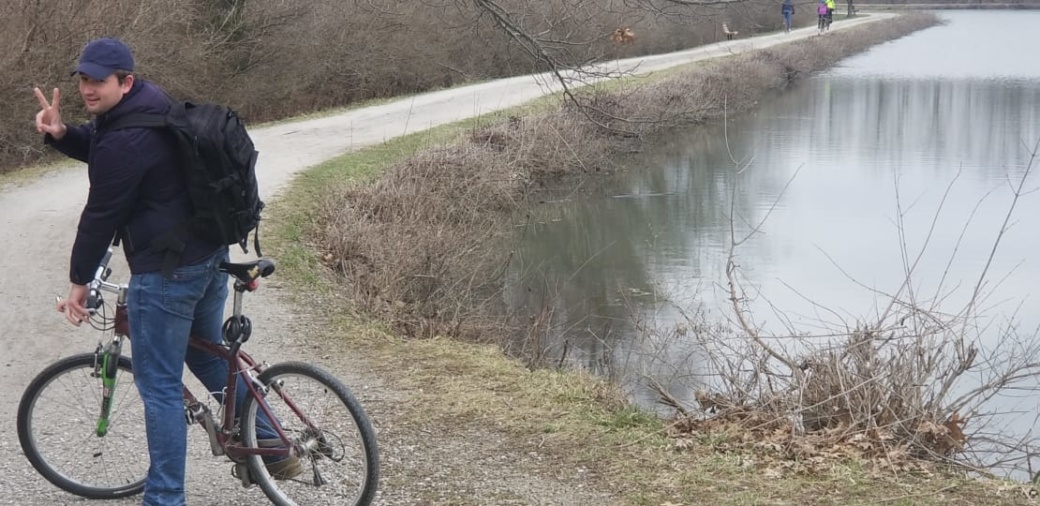
I saw people of Columbia selflessly trying to help their fellow townspeople in the time of need. I explored Columbia’s awesome bicycle trails down to the Missouri River. And was so happy speeding through the woods that I didn’t care about any bars, cafes, night clubs, or theaters. I started cooking in America —for the first time since my student years, for God’s sake!
I saw the lonesome airport of Chicago and early empty streets of Queens — quite a thing to be witnessing.

When our aircraft finally landed in Kyiv, which was also combating the virus, I heard the loudest burst of applause for Ukrainian pilots who got us all home. And I immediately received a request from Ukraine’s biggest talk radio network to interview me about my life in coronavirus-afflicted America.
For years, the chance of joining this fellowship as a chance to receive practical training in the U.S. was one of my guiding stars, something that was a great career target to aim at. I crawled through dirty trenches of Donbas amid artillery assaults. I sweated in the deserts of Palestine. I dashed through the rainforests of Congo. And many times I thought I was doing all this in the hope of becoming good enough to join the fellowship in the U.S.
So as I sit in my home newsroom in Kyiv, I’m still thinking about the fellowship as a source of good hope — to get back to America when the time is right and eventually pass the long-awaited training at the Pentagon.
Not a single hour that we can remember as a fun experience should be considered as wasted time.
